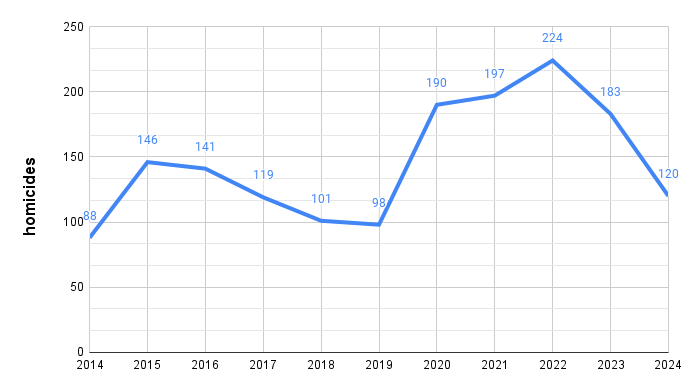State Reps. Jason Fields, Todd Novak, Joe Sanfelippo, Leon Young, Chuck Wichgers and John Spiros have all filed for bankruptcy at some point.

By Peter Cameron, THE BADGER PROJECT
At least six members of the Wisconsin State Assembly have filed for personal bankruptcy at some point, The Badger Project has discovered in an investigation of federal court records.
The six legislators, all men, are Republicans and Democrats. The group consists of Jason Fields (D-Milwaukee), Todd Novak (R-Dodgeville), Joe Sanfelippo (R-New Berlin), John Spiros (R-Marshfield), Chuck Wichgers (R-Muskego) and Leon Young (D-Milwaukee).
Five of the six assemblymen did not respond to multiple messages seeking comment.
Wichgers, whose 83rd District covers Muskego, Big Bend and Waterford, told The Badger Project his bankruptcy was caused by large medical bills incurred when his wife endured two miscarriages in a short period of time, as well as another hospital visit for one of his eight children.
With their bills exceeding their monthly income by about $1,000, Wichgers said he and his wife tried to negotiate a payment plan they could afford. But the hospitals “would not budge at all,” according to their Milwaukee-based attorney, Joseph W. Seifert. Wichgers and his wife owed about $50,000 in medical debt, Seifert told The Badger Project. The Wichgers filed for bankruptcy in 2010.
Young, whose 16th District covers part of Milwaukee, reported more than $10,000 in debt to a Las Vegas hotel and casino, Mandalay Bay Resort, according to bankruptcy documents he filed in 2010. In total, he reported more than $200,000 in debt.
Spiros, whose 86th District includes part of Marshfield as well as Mosinee and Marathon City, reported more than $100,000 in consumer debt, according to his initial bankruptcy documents, which he filed in 2002.
Sanfelippo, whose 15th District covers West Allis and New Berlin in the Milwaukee suburbs, reported the most debt of the six politicians, at nearly $900,000. Much of that appears to have come from a failed business. That debt included nearly $21,000 in unpaid payroll withholding taxes owed to the state, and more than $300,000 in a tax debt for state unemployment insurance. Now 54, Sanfelippo filed for bankruptcy in 2001. He sat on the Assembly Committee on Financial Institutions in 2017 and 2018.
Fields, whose 11th District covers the north side of Milwaukee, was in between stints as a state legislator when he filed for bankruptcy in 2016. He listed $6,000 in assets, and reported some medical and student debt in the more than $270,000 he owed to creditors. Despite his financial history, Fields, 44, promotes himself as a professional investment manager. He also sat on the Assembly Committee on Financial Institutions in 2017 and 2018.
And in a situation that comes as no surprise to us at The Badger Project, Novak filed for bankruptcy in 1992 while working as an editor for The Dodgeville Chronicle newspaper (journalists don’t make much money).
Novak represents the 51st District, which includes Dodgeville, Mineral Point, and Monroe. The 53-year-old politician also serves as the mayor of Dodgeville, earning $7,000 annually for that position. Because Novak’s bankruptcy documentation is so old, it has been disposed of, according to the Federal Records Center in Chicago.

All six assemblymen filed for Chapter 7 bankruptcy, according to federal court records. Individuals file for bankruptcy when they can’t afford to pay their debts. The Chapter 7 type allows debtors to sell some nonessential assets and put that cash towards their debts, rather than entering a payment plan. Many of the other debts are wiped clean and the debtors no longer legally owe them to their creditors.
More than 16,000 bankruptcies were filed in Wisconsin in 2016, the most recent year data is available from the Administrative Office of the U.S. Courts. That’s about 3.7 per 1,000 adults in Wisconsin.
The number of bankruptcies filed in Wisconsin has fallen steadily since 2010, the heart of the Great Recession, when more than 29,000 filed in the state in 2010, for a rate of about 6.8 per 1,000 Wisconsin adults.

With at least six assemblymen filing bankruptcy at some point, that’s a rate of at least 6 percent in the 100-member Assembly. That body, along with the Wisconsin State Senate, was responsible for crafting and passing the state’s $76 billion, two-year budget last year. The Republican-controlled State Assembly and State Senate haggled 10 weeks past the July 1 deadline before passing it.
The legislators’ bankruptcies raise questions about the Assembly’s ability to balance a budget, especially in a year when the legislature took weeks past its deadline to get it passed.
But managing one’s personal finances and crafting and voting on a state budget is not an apples-to-apples comparison, according to James Simmons, a political science professor at the University of Wisconsin – Oshkosh.
“State budgets involve the value and priorities legislators place on policies and programs,” he wrote in an email. “Furthermore, their voting on budgets usually reflect clear partisan divisions and party line agenda rather than the individual financial acumen of the elected official.”
And legislators don’t manage the state’s day-to-day finances as the heads of state agencies do, he noted.
The two Democrats, Fields and Young, were serving as assemblymen during part or all of their bankruptcy process. State representatives and state senators make about $50,000 annually.
All four Republicans declared bankruptcy years before taking office.
It’s not uncommon to see legislators with a history of personal bankruptcy, Simmons said.
“This is not something that usually hurts them,” Simmons said. “I can’t think of any race in which bankruptcy or personal finance can be attributed to a loss.”
“When it comes to state legislators, most people who vote for them know very little about them,” he continued.
Simmons also noted the high-profile case of U.S. President Donald Trump, whose companies have filed for bankruptcy protection multiple times over the years.
“If (a history of bankruptcy) isn’t going to affect a high-information race, it certainly won’t have much effect on a low-information race,” Simmons said.
Fields is the only candidate virtually assured of retaining his seat next year. The Democrat is running unopposed in both the August primary election and the November general election.
Republicans Novak, Sanfelippo and Wichgers have no primary opponents, but must defeat Democrat challengers to remain in the Assembly.
Spiros, a 57-year-old Republican, faces a challenger in the August primary. Should he prevail, he must defeat a Democrat and an Independent candidate in the general.
Young, a 51-year-old Democrat, is leaving the Assembly after more than two decades. Party leaders stripped him of his committee assignments earlier this year. The reasons why are unclear, but Young has said they did so because he pushed for an assault weapons ban.
The Badger Project is a nonpartisan, citizen-supported journalism nonprofit in Wisconsin.
Categories: Investigations, Politics





This is why this country is in financial catastrophe it’s in. The politicians cant even manage their own finances are now managing the state finances. This is ridiculous. We need to audit them all before there elected and don’t vote for them. Also audit them while in office so they can’t be re-elected. There needs to be a law you can’t be
in government with bad credit or bankruptcy.